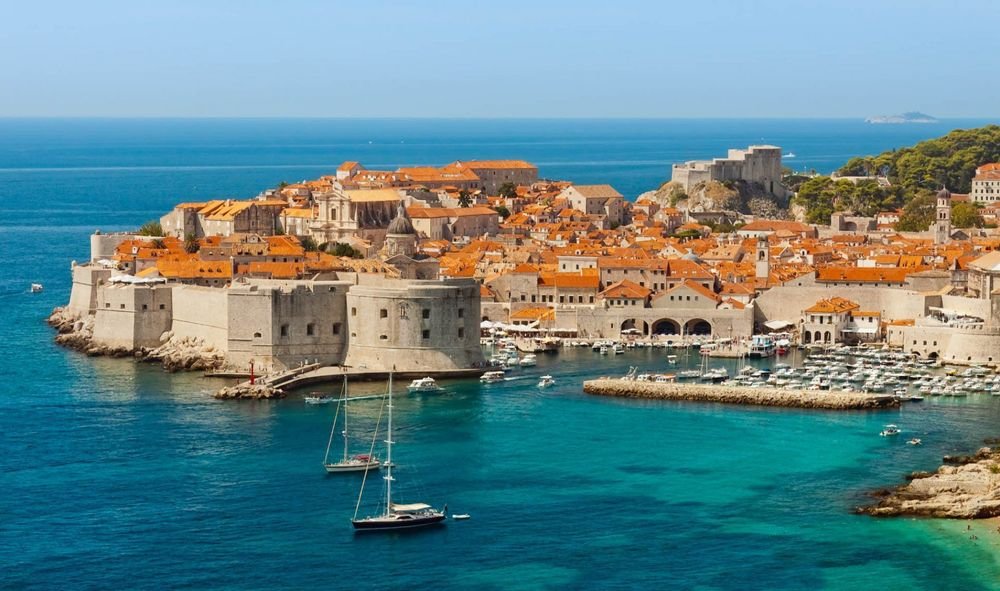
What you should know before visiting Croatia
Croatia, with its stunning Adriatic coastline, rich history, and unique cultural experiences, has become one of Europe's most sought-after travel destinations. From the ancient streets of Dubrovnik to the breathtaking natural landscapes of Plitvice Lakes National Park, the country offers an array of experiences for every type of traveler. However, to ensure a smooth and enjoyable visit, there are several important considerations to keep in mind before embarking on your Croatian adventure, CE Report reports.
Visa and Entry Requirements
Before you pack your bags, it’s essential to check the entry requirements for Croatia, especially if you’re traveling from outside the European Union. Citizens of the EU, the USA, Canada, Australia, and many other countries do not require a visa for stays shorter than 90 days. However, check the latest regulations, as rules can change based on international agreements.
Currency and Payment Methods
Croatia uses the euro (EUR), which was adopted in January 2023. It’s advisable to have some cash on hand, particularly in smaller towns where card facilities may not be as common. ATM services are widely available, and credit and debit cards are generally accepted in tourist areas, but it’s wise to notify your bank of your travel plans to avoid issues with transactions.
Language and Communication
While Croatian is the official language, English is widely spoken, especially in urban areas and popular tourist destinations. Many Croatians, particularly younger generations, can communicate effectively in English. However, learning a few basic Croatian phrases can enhance your experience and endear you to the locals.
Transportation Options
Croatia boasts a well-developed transportation network. Renting a car is one of the best ways to explore the country, as it gives you the freedom to visit remote areas and hidden gems. Public transport, including buses and ferries, is reliable and can take you between major cities and islands. If you opt for trains, be aware that they may not cover all routes or may take longer than buses.
Best Time to Visit
The peak tourist season runs from late June to August when the weather is warmest, and the beaches are bustling. If you prefer milder weather and fewer crowds, consider visiting in the shoulder seasons (late spring or early autumn). This time offers pleasant temperatures, vibrant local festivals, and lower prices.
Popular Destinations to Explore
Croatia offers a diverse array of attractions.
-
Dubrovnik: Known as the "Pearl of the Adriatic," this UNESCO World Heritage Site is famous for its well-preserved medieval architecture and stunning coastal views. Don’t miss walking along the city walls for a breathtaking perspective.
-
Split: This vibrant city boasts the ancient Diocletian's Palace, with its remarkable blend of history, culture, and modern life. The nearby beaches and islands make for easy day trips.
-
Plitvice Lakes National Park: A must-visit for nature lovers, this national park features cascading lakes and lush forests. Plan your visit early in the day to avoid crowds.
-
Hvar: Renowned for its vibrant nightlife and stunning lavender fields, Hvar is an island paradise for beach lovers and partygoers alike.
Cuisine and Dining Etiquette
Croatian cuisine reflects the country’s diverse cultural influences. Don’t miss trying traditional dishes like Peka (a meat and vegetable dish cooked under a bell jar), fresh seafood, and truffles from Istria. Tipping is customary, typically around 10-15% for good service in restaurants.
Cultural Norms and Local Customs
Croatians are known for their warm hospitality. However, it’s essential to respect local customs and practices. Dress modestly when visiting churches and religious sites. It’s also polite to greet locals with a friendly “Dobar dan” (Good day) and to say thank you with “Hvala.”
Safety and Health Precautions
Croatia is generally safe for tourists, with low crime rates. Nevertheless, it’s advisable to stay vigilant, particularly in crowded places or while enjoying nightlife. Ensure you have travel insurance that covers health emergencies, and familiarize yourself with local healthcare services.
Packing Essentials
Depending on the season of your visit, packing requires consideration of the activities you plan to do. Don’t forget essentials like comfortable walking shoes, sunscreen, a reusable water bottle, and a light jacket for cooler evenings. If you plan to swim or partake in outdoor activities, pack swimwear and gear accordingly.
Conclusion
Visiting Croatia offers a unique opportunity to explore a country rich in history, natural beauty, and vibrant culture. By keeping these important considerations in mind, you can ensure that your journey is both enjoyable and enriching. Whether you're lounging on a picturesque beach, wandering through ancient ruins, or enjoying local delicacies, Croatia promises an unforgettable experience that will leave you longing to return.






















